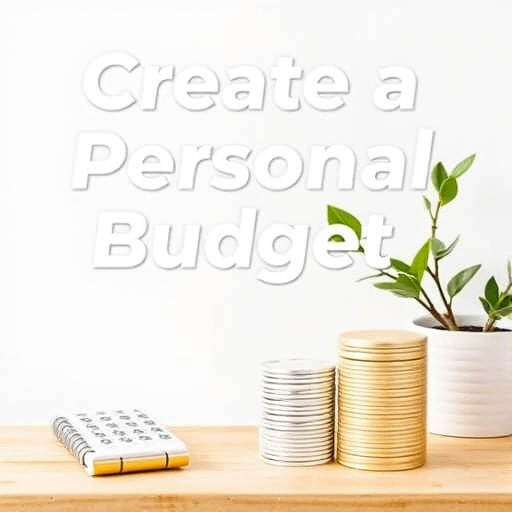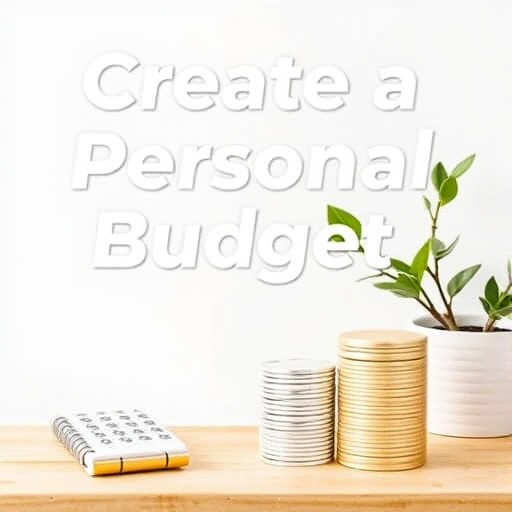Create a Personal Budget: Tips to Make a Budget andAchieve Financial Goals

Creating a personal budget is an essential step toward achieving financial stability and reaching your financial goals. A well-structured budget can help you understand your income and expenses, allowing you to make informed decisions about your spending habits. In this article, we will explore the fundamentals of personal budgeting, provide a step-by-step guide on how to create a budget, and discuss key components and common pitfalls to avoid. By the end, you will be equipped with the knowledge needed to create a personal budget that not only meets your current needs but also supports your long-term financial objectives.
What is a Personal Budget and Why is it Important?
Understanding Fixed and Variable Expenses
A personal budget serves as a financial blueprint that outlines your income and expenses each month. It is vital to differentiate between fixed and variable expenses when creating a budget. Fixed expenses are consistent costs that do not change from month to month, such as mortgage or rent payments, car payments, and utility bills. On the other hand, variable expenses fluctuate based on usage or personal choices, including grocery bills, entertainment, and dining out. Understanding these categories helps you create a budget that accurately reflects your financial situation and enables you to manage your resources effectively.
The Role of a Budget in Achieving Financial Goals
Establishing a personal budget is crucial for achieving both short-term and long-term financial goals. A budget can help you prioritize your spending, ensuring that you allocate funds toward savings goals, emergency funds, and debt repayment. By tracking your income and expenses, you can identify areas where you may need to cut back and redirect those funds toward your financial priorities. A well-designed budget not only facilitates better spending habits but also empowers you to reach your financial aspirations, whether that involves saving for a vacation, investing in an investment account, or paying down debt.
How a Personal Budget Can Help You Determine Spending Habits
A personal budget can help you determine your spending habits by providing a clear overview of where your money goes each month. By categorizing your expenses and analyzing your financial data, you can identify patterns and make informed decisions about your future spending. For instance, you may discover that you spend excessively on takeout or entertainment. Armed with this information, you can adjust your budget to ensure that your spending aligns with your values and long-term goals. This awareness fosters accountability and encourages you to stick to your budget, leading to healthier financial habits over time.
How to Create a Budget: Step-by-Step Guide
Step 1: Assess Your Monthly Income
The first step in creating a budget is to assess your monthly income. This includes all sources of income, such as your salary, bonuses, rental income, and any other earnings. Understanding your total monthly income provides a foundation upon which you can build your budget plan. Make sure to account for any irregular income, such as freelance work or commissions, to ensure a comprehensive assessment. Knowing how much money you have available each month will help you create a realistic budget that accommodates all your financial obligations and goals.
Step 2: List Your Fixed and Variable Expenses
Once you have assessed your monthly income, the next step is to list your fixed and variable expenses. Fixed expenses should include your mortgage or rent, car payments, insurance premiums, and any other regular payments. Variable expenses might encompass groceries, utility bills, and discretionary spending. By compiling this information, you will have a clearer picture of your financial obligations and can identify areas where adjustments may be necessary. This comprehensive listing is essential for creating a budget that accurately reflects your financial reality.
Step 3: Categorize Your Expenses and Income
In this step, you will categorize your expenses and income to facilitate better tracking. Organize your expenses into categories such as housing, transportation, food, and entertainment. Additionally, categorize your income by source, such as primary employment, side gigs, or passive income from an investment account. This structured approach allows for easier monitoring of your financial activities and helps identify trends in your spending habits. By understanding the categories of your income and expenses, you will be better equipped to make adjustments and stay on track with your budget.
What are the Key Components of a Realistic Budget Plan?
Setting Financial Priorities and Goals
Setting financial priorities and goals is a crucial aspect of creating a realistic budget. Identify what is most important to you, whether it’s saving for a down payment on a house, building an emergency fund, or planning for retirement. Establishing clear financial goals allows you to allocate your resources effectively and prioritize your spending. By focusing on your long-term financial objectives, you can create a budget that not only meets your immediate needs but also lays the groundwork for a secure financial future.
Creating an Emergency Fund: Why It Matters
Creating an emergency fund is an essential component of any budget plan. An emergency fund provides a financial safety net that can help you navigate unexpected expenses, such as medical bills or car repairs. It is recommended to save at least three to six months’ worth of living expenses in a dedicated savings account. This cushion not only reduces financial stress but also ensures that you do not have to rely on credit cards or loans to cover unplanned costs. By building an emergency fund into your budget, you are taking proactive steps to protect your financial well-being.
Adjusting Your Spending to Meet Financial Goals
Once you have established your financial priorities and created an emergency fund, the next step is to adjust your spending to meet your goals. This may involve making sacrifices in certain areas, such as dining out less frequently or finding ways to reduce utility bills. By analyzing your spending habits, you can identify opportunities to save effectively and redirect those funds toward your savings goals or debt repayment. Adapting your budget regularly ensures that you stay on track and remain focused on achieving your long-term financial ambitions.
How to Review Your Budget Regularly for Financial Success?
Monthly Check-ins: Staying on Track with Your Budget
Regularly reviewing your budget is critical for achieving financial success. Monthly check-ins allow you to monitor your income and expenses, ensuring that you are adhering to your budget plan. During these reviews, assess any discrepancies between your expected and actual spending, and make necessary adjustments to stay on track. This practice fosters accountability and provides an opportunity to celebrate your achievements, reinforcing positive financial behaviors. By committing to monthly reviews, you can adapt your budget to meet changing circumstances and maintain progress toward your financial goals.
Using a Spreadsheet to Track Income and Expenses
Utilizing a spreadsheet is an effective method for tracking your income and expenses. Creating a simple spreadsheet allows you to categorize your financial activities and visualize your budget in a structured manner. You can easily input your monthly income, fixed expenses, and variable expenses to analyze your financial landscape. Many budgeting tools and applications are available that can assist you in this process, providing features such as charts and graphs to illustrate your financial journey. By leveraging technology, you can streamline your budgeting efforts and develop a clearer understanding of your financial habits.
Identifying Areas to Cut Back on Expenses
As you review your budget regularly, it is essential to identify areas where you can cut back on expenses. Analyze your spending patterns and pinpoint categories where you may be overspending. For example, if you notice that your grocery bills are consistently high, consider making meal plans or shopping with a list to minimize impulse purchases. Additionally, evaluate discretionary spending, such as entertainment and dining out, and determine if there are more budget-friendly alternatives. By proactively identifying areas to reduce costs, you can free up funds for savings goals or debt repayment.
What Are the Common Mistakes to Avoid When Making a Budget?
Overlooking Irregular Expenses
One common mistake when creating a budget is overlooking irregular expenses. Many individuals focus solely on monthly fixed and variable expenses, neglecting to account for costs that occur less frequently, such as annual subscriptions, holiday gifts, or car maintenance. Failing to include these expenses can lead to budget shortfalls and financial stress. To avoid this pitfall, make a list of any irregular expenses and allocate funds for them within your budget, ensuring that you remain prepared for these financial obligations.
Failing to Adjust Your Budget Over Time
Another critical mistake is failing to adjust your budget over time. Life circumstances can change, including shifts in income, living expenses, or financial goals. Regularly reviewing and adjusting your budget is essential to reflect these changes accurately. If you receive a raise or your expenses increase, take the time to update your budget accordingly. Flexibility is key to maintaining a realistic budget that works for your unique financial situation. By being proactive in adjusting your budget, you can continue to reach your financial goals effectively.
Setting Unrealistic Financial Goals
Finally, setting unrealistic financial goals can undermine your budgeting efforts. While it is essential to aim high, creating achievable and measurable goals is crucial for maintaining motivation and accountability. For instance, instead of aiming to save an enormous sum of money in a short period, set smaller, incremental savings goals that are attainable within your budget. This approach allows you to celebrate milestones along the way, reinforcing positive financial behaviors and helping you stay committed to your long-term financial plan.





